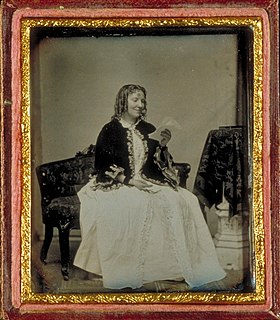A Quote by C. S. Lewis
who can duly adore that Love which will open the high gates to a prodigal who is brought in kicking, struggling, resentful, and darting his eyes in every direction for a chance of escape? The words compelle intrare, compel them to come in, have been so abused by wicked men that we shudder at them; but, properly understood, they plumb the depth of the Divine mercy. The hardness of God is kinder than the softness of man, and His compulsion is our liberation.
Quote Topics
Related Quotes
To Mercy Pity Peace and Love All pray in their distress, And to these virtues of delight Return their thankfulness. For Mercy Pity Peace and Love Is God our father dear. And Mercy Pity Peace and Love Is Man his child and care. Then every man of every clime That prays in his distress Prays to the human form divine: Love Mercy Pity Peace. And all must love the human form In heathen, Turk, or Jew. Where Mercy, Love and Pity dwell There God is dwelling too.
Mary lived in the divine Eucharist, the center of her love. All her thoughts, words, and actions sprang from It like the rays from the sun. The Eucharist was the oracle which she consulted, the grace which she followed. But Jesus Christ in His Sacrament lives the same life of love which consumed Him in His mortal days. In His sacramental state He continues to adore His Father by His depthless self-abasement. He is still the Mediator and Interceder with divine goodness for the salvation of men
It can even come about that a created will cancels out, not perhaps the exertion, but the result of divine action; for in this sense, God himself has told us that God wishes things which do not happen because man does not wish them! Thus the rights of men are immense, and his greatest misfortune is to be unaware of them.
What we see at the cross is the white-hot revelation of the character of God, of his love providing the price that holiness requires. The cross was his means of redeeming lost sinners and reconciling them to himself, but it was also a profound disclosure of his mercy. It is, in Paul’s words, an ‘inexpressible gift’ that leads us to wonder and worship, to praise and adore the God who has given himself to us in this way.
[St. Francis] looked upon creation with the eyes of one who could recognize in it the marvelous work of the hand of God. His solicitous care, not only towards men, but also towards animals is a faithful echo of the love with which God in the beginning pronounced his 'fiat' which brought them into existence. We too are called to a similar attitude.
At the gates of the forest, the surprised man of the world is forced to leave his city estimates of great and small, wise and foolish. The knapsack of custom falls off his back with the first step he makes into these precincts. Here is sanctity which shames our religions, and reality which discredits our heroes. Here we find Nature to be the circumstance which dwarfs every other circumstance, and judges like a god all men that come to her.
...if we know God our knowledge of... everything will be brought to perfection, and, in so far as is possible, the infinite, divine and ineffable dwelling place (cf. Jn. 14:2) will be ours to enjoy. For this is what our sainted teacher said in his famous philosophical aphorism: 'Then we shall know as we are known' (I Cor. 13:12), when we mingle our god-formed mind and divine reason to what is properly its own and the image returns to the archetype for which it now longs.
A good soldier is a blind, heartless, soulless, murderous machine. He is not a man. His is not a brute, for brutes kill only in self defense. All that is human in him, all that is divine in him, all that constitutes the man has been sworn away when he took the enlistment roll. His mind, his conscience, aye, his very soul, are in the keeping of his officer. No man can fall lower than a soldier-it is a depth beneath which we cannot go.
Only when we see that the way of God's law is absolutely inflexible will we see that God's grace is absolutely indispensable. A high view of the law reminds us that God accepts us on the basis of Christ's perfection, not our progress. Grace, properly understood, is the movement of a holy God toward an unholy people. He doesn't cheapen the law or ease its requirements. He fulfills them in his Son, who then gives his righteousness to us. That's the gospel. Pure and simple.
If the divine Mercy grants him the knowledge of himself, then his adoration will be pure; and, for him, paradise and hell, recompense, spiritual degrees and all created things will be as though God had never created them. He will not accord them any importance, nor will he take them into consideration, except to the extent that it is prescribed by the divine Law and Wisdom. For then he will know Who is the sole Agent.


































